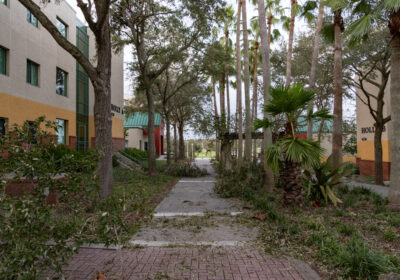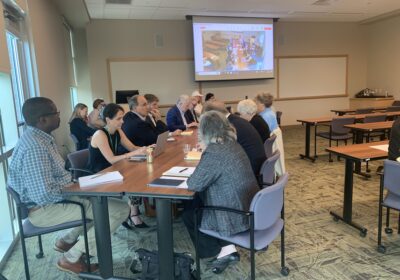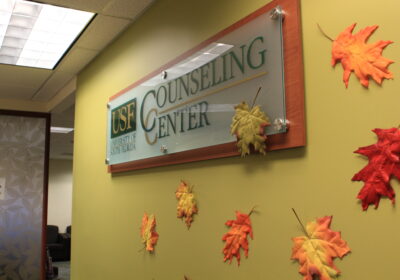USF seeksto improve four-year graduation rates
Many students begin college with the idea that they will graduate in four years.
However, those donning caps and gowns after just four years will find themselves in the minority, said Paul Dosal, director for the USF Office of Student Success.
“Fewer and fewer people have the luxury of going on to that four-year, in-residence college and getting done,” he said.
Whether it is the inability to secure a class for a specific semester or the need to work to pay for classes, many students stay longer than anticipated to receive their degree.
To ensure that students are successful in graduating within a standard four-year period, the University has established registration and advising priority to get students into the classes they need at the right time, Dosal said.
“The other issue is that, in order to get those classes available when the students want them, it’s not always easy to get that class at the perfect time – between 10 a.m. and 2 p.m. – that everyone wants to teach and that everyone wants to take,” he said.
But for Spencer Montgomery, student body vice president, the differing times are not a big concern.
“In my experience, I think you can always get the classes you need if you try to register when you are first given the chance,” said Montgomery, a fifth-year senior majoring in communications. “When students wait, they put themselves in a bind of not finding what they need in advance.”
Even though students may not be able to take a class during a convenient time, USF has begun to offer classes throughout the day to provide students with more course options, Dosal said. This could even include weekend classes for students who have to work during the week.
In the 2009-10 academic year, the average full-time student graduated in about 4.19 years, he said, nearing the four-year ideal.
Though USF is traditionally viewed as a commuter school, Dosal said more full-time students should take more credit hours per semester in order to graduate on time.
He said another problem may lie in how graduation rates are calculated.
The University uses two measurements to calculate graduation rates: students who graduate in four years or those who graduate in six years. As of the last academic year, about 50 percent of the students at USF graduate in six years, he said.
Dosal said if a student is unable to maintain full-time status – at least 12 credit hours per semester – during their time at USF, they are pulled from the category for four-year graduation rates and are not measured, though they may continue to take classes.






